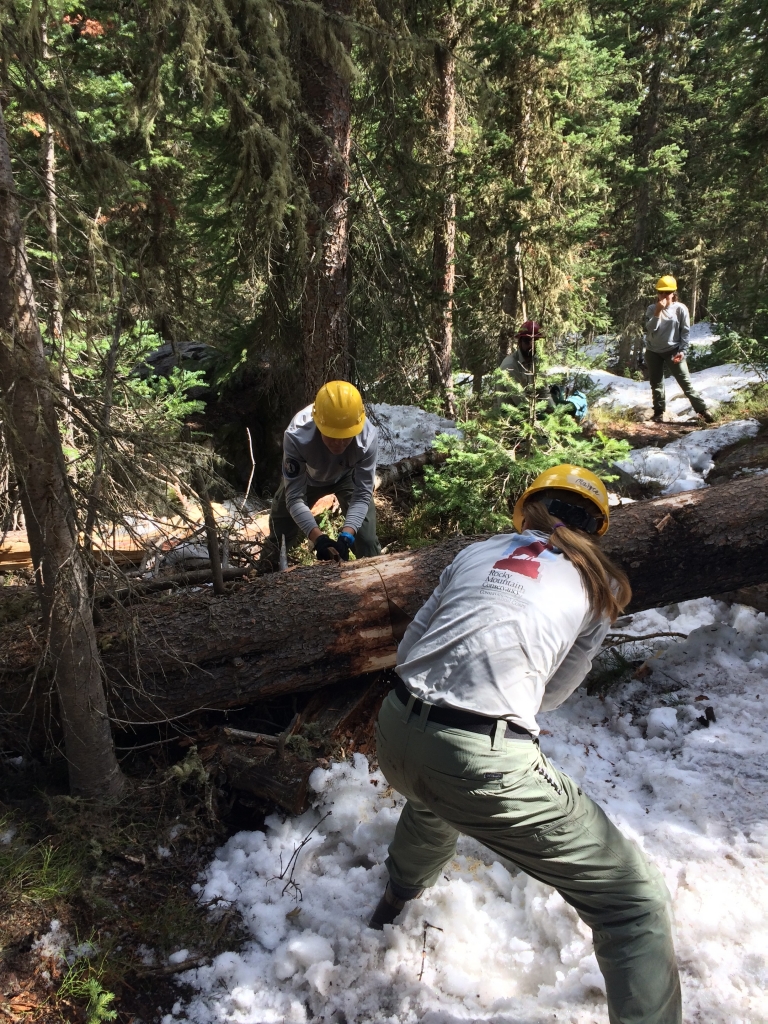Describe the steps you took to obtain your internship/research opportunity/fellowship.
I first heard about AmeriCorps via a friend. It sounded like an awesome experience, so I went onto the AmeriCorps website and started doing some research. Satisfied with the information I had found, I started looking for openings in programs, primarily those involved in environmental conservation work. Before long, I had applied to, been interviewed for, and been accepted to conservation corps in Montana, Colorado, Nevada, and Illinois. Ultimately, I decided to accept a position with the Rocky Mountain Conservancy in Colorado.
How far in advance did you prepare and begin applying for your experiential learning opportunity?
I began looking into AmeriCorps later in the Fall semester, and I started looking into and applying for programs early in the Spring semester.
If you used any Career Center services, resources, or events to obtain your job offer, what were they? How did they support your application process?
Along the way, I did have some questions regarding AmeriCorps and some of the programs I was interested in potentially applying for, so I emailed a couple of people at the Career Center who put me in contact with some students who had done AmeriCorps before.
Describe some of your responsibilities or duties during your experiential learning opportunity.
During the summer, I worked alongside my crew in maintaining trails and working on various projects throughout the Arapaho National Forest. Some of projects included rerouting a trail, covering social trails and reclaiming old trails, building a wilderness bridge, repairing tread, crosscutting and clearing trees fallen in the trail, constructing turnpikes, digging drains, and swamping for USFS chainsaw sawyers. Also a part of our work was going out in the back country, where we camped as we worked on a specific project.
What was a typical day like "on the job?"
A typical day on the job was hiking up mountain trails, packs on, tools in hand, and llamas in tow to get to our project site, which could include anything from crosscutting and moving logs to doing tread repair to building a wilderness bridge.
What are some major takeaways from your experience? How will these help prepare you for the next step after graduation?
My most significant takeaway from this experience relates to a certain quote I read on the back of a Luna bar wrapper during lunch break, sitting in the quiet and peaceful woods after a long, hard hike- "Great things don't come from comfort zones." I applied to this program because I wanted to challenge myself, and I definitely was. Climbing steep trails for 4.5 miles with a heavy pack weighing me down, I kept thinking of quitting. But I wouldn't give in, because I knew that often times, the more difficult the journey is, the more beautiful is the destination.
This helped me prepare for my next step after graduation. I will always carry this message with me. No matter how hard the climb may be, reaching the summit, I will look back and be proud of what I accomplished.
Did this experience help clarify your career path? If yes, how so?
It didn't necessarily help to clarify my career path, but rather it showed me more paths I can take. Though I doubt I will want to make a career in trail work, I have learned a lot about the Forest Service and Park Service along with the many different career paths one can take with them, thus opening up more possibilities for my future career.

Malyce Collins
"Great things don't come from comfort zones."
Major: Environment & Society, Class of 2021
Company/Organization: Rocky Mountain Conservancy- Conservation Corps (AmeriCorps program)
LinkedIn: www.linkedin.com/in
/jmalycecollins
